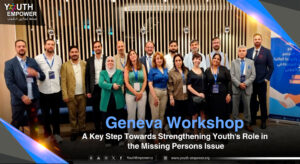World Teachers’ Day October 5
World Teachers’ Day is celebrated annually on October 5, honoring teachers and their crucial role in shaping the future of generations and societies. This day was established in 1994 by the United Nations Educational, Scientific and Cultural Organization (UNESCO) and the International Labour Organization to commemorate the signing of the “Joint Recommendation Concerning the Status of Teachers” in 1966. It serves as an opportunity to emphasize the importance of teachers in building sustainable societies through education and to affirm their rights, responsibilities, and working conditions.
Historical Background of World Teachers’ Day
On October 5, 1966, UNESCO, in cooperation with the International Labour Organization, adopted a joint recommendation on the status of teachers.
This document was the first comprehensive framework outlining the rights and responsibilities of teachers, including securing proper working standards and professional conditions.
This initiative was part of the international recognition of education as a fundamental human right and a key tool for achieving sustainable development.
Importance of World Teachers’ Day
World Teachers’ Day focuses on the vital role teachers play in the development of societies and the upbringing of future generations through education. The day aims to achieve several key objectives:
- Raising awareness of teachers’ roles: The day highlights the efforts teachers make in facing ongoing challenges within education systems, from resource shortages to increasing pressure to deliver better results.
- Affirming teachers’ rights: This day serves as a reminder to governments and decision-makers of the need to improve teachers’ working conditions, salaries, and to provide a supportive educational environment.
- Encouraging international dialogue: World Teachers’ Day is an opportunity for countries and educational organizations to collaborate, discuss global educational challenges, and find sustainable solutions to ensure quality education for all.
Challenges Facing Teachers
Despite the recognition of their importance, teachers face numerous challenges that hinder their ability to fulfill their mission. These include:
Resource shortages: In many developing countries, teachers struggle with a lack of educational resources and infrastructure needed to provide quality education.
Low wages: In various regions, teachers do not receive salaries that reflect the scope of their work and responsibilities.
Professional burdens: Increasing pressure on teachers to meet high academic standards while dealing with student behavior challenges or limited support can lead to stress and burnout.

Teachers’ Role in Building Sustainable Communities
Teachers do more than just transmit knowledge; they shape the character of students and instill values of humanity and social responsibility.
Through education, teachers can empower students to think critically, encourage innovation, and inspire active participation in their communities. In the face of global challenges like climate change, political instability, and economic turmoil, education plays a crucial role in preparing future generations to confront these issues.
The Relationship Between Teachers and Youth
Youth are the future of societies, and teachers are directly involved in shaping that future. Quality education plays a significant role in empowering young people to access opportunities and achieve their goals. The relationship between teachers and students extends beyond academic learning to guide youth toward adopting human values and engaging in community participation.
The Educational Context in Syria
In the Syrian context, education is one of the most pressing challenges facing the country. With ongoing conflict and deteriorating infrastructure, many children and young people struggle to access quality education. Despite these challenges, teachers continue to play a vital role in delivering education under extremely difficult conditions. Youth empowerment initiatives in Syria highlight the importance of supporting teachers and providing them with a conducive educational environment to continue their mission.
How to Support Teachers
Several steps can be taken to support and appreciate teachers’ efforts:
1. Improving their professional conditions: Governments and educational institutions should provide adequate salaries and ensure safe and encouraging working environments.
2. Providing continuous training: Teachers should be given ongoing opportunities to enhance their educational and technological skills to keep pace with rapid changes in education.
3. Enhancing their role in decision-making: Teachers should have a voice in decisions that affect the educational process, as they are most aware of students’ needs and the educational environment.
Read also our article about World Space Week.
World Teachers’ Day is an opportunity to honor and appreciate the efforts of teachers around the world who work tirelessly to prepare future generations.
By supporting and empowering them, we can make a real difference in education systems and ensure a brighter future for young people and communities.
Teachers are not just transmitters of knowledge; they are the makers of the future and the pillars of sustainable development.
Follow us on social media:




